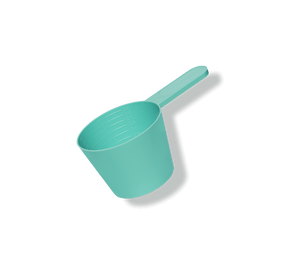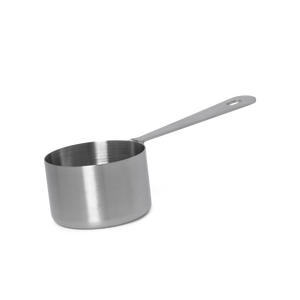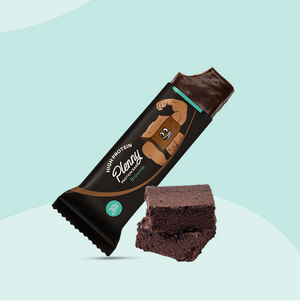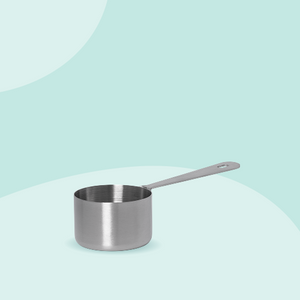You’ve heard it time and time again. Be it from your roommate, your dad, grandmother, partner, or that nosy lady sitting at the table next to you, there seems to be one universal truth when it comes to breaking the fast:
Breakfast is the most important meal of the day.
But can science vouch for this?
For people who eat breakfast, mornings begin by gobbling down oats, eggs, fruits or breads just to get some initial fuel for the day. Yet that doesn’t account for the tens of thousands of college students who skip breakfast just so they can sleep in, nor does it consider your friend George who can’t stop talking about how fasting has changed his life. They all seem to be doing fine, right?
So without further ado, let’s delve into your breakfast.
A Farmer’s Breakfast
To the Classical Romans, a healthy breakfast was nothing complicated: bread, cheese, some oil, a bit of honey, and maybe a glass of wine (because when in Rome, right?). A farmer could wake up early, snatch some bread and goat cheese out of the kitchen, and waste no time before starting his long day of back-breaking labor.

For him and his intensive physical labor meant a lot of calories burned. This especially carb-heavy meal was vital. However, most people in our society are not farmers anymore. Instead, most of us sit behind a desk for the majority of the day. We use our brains instead of our bodies, essentially only requiring physical energy for a commute, workout, or getting up to make our next meal.
So what does this morning meal mean for people in this day and age?
A Modern View on Breakfast
To help us out with this, we will be analyzing the results of the International Breakfast Research Initiative [1]. Dietary data from Canada, Denmark, France, Spain, the UK and the USA was compiled to create an overview of breakfast and human nutrition.
Three main benefits of breakfast in this day and age are evident:
- an increased intake of certain macro- and micronutrients
- general positive health effects
- and the promotion of healthy dietary habits with the consumption of breakfast.
This is very interesting information for breakfast eaters or for people who skip breakfast. Let’s zoom in on each of these items.
Macro- and Micronutrients
As the name might imply, the body needs a large number of macronutrients, and a smaller amount of micronutrients to survive and thrive long term.
Let’s zoom in to the micronutrients.
While the quantities of these essential vitamins and minerals seem very small on paper, they are critical to living a healthy lifestyle. According to Harvard Health, failing to get even the small quantities of micronutrients needed by the body “virtually guarantees disease” [2]. Not getting the right amounts of these micronutrients could contribute to some major illnesses, like heart disease, type 2 diabetes, cancer, and osteoporosis [2].
So how do you make sure you get them?
EAT BREAKFAST.
In 2017, an American study demonstrated that only 26% of those who skip breakfast meet two-thirds of the recommended daily intake of vitamins and minerals. This number jumps to 59% for people who ate breakfast [1].
Besides this, study after study seems to confirm that eating breakfast correlates with a better, more varied, and more nutritionally complete diet [1]. That’s because a healthy breakfast often consists of fruits (full of vitamins) and things like dairy and whole grains (rich in minerals).
When we talk about macronutrients, one you’ll often find in breakfasts is fiber.
Fiber famously slows down the rate at which sugar is absorbed into the bloodstream, reducing the risk of heart disease and diabetes. Furthermore, depending on the type, they can also enhance the movement of food through our digestive system [3][4].

Now, why is this important in terms of breakfast?
Well, think of some of the foods you might typically have after you wake up: a bowl of cereal, a banana, some oatmeal, a slice of wholegrain bread, or a glass of fresh, pulpy orange juice... You guessed it - these are full of fiber. Because of this correlation, most people get much of their daily dose of fiber from their breakfasts [1].
Time to stop skipping morning meals and stop judging your roommate for that boring bowl of cornflakes every morning.
Join them on the breakfast train!
What you should be eating for breakfast
So now you are probably wondering what you should be eating for breakfast. Well, it depends completely on you and what you are planning on doing throughout your day.
If your job or day-to-day requires you to do a lot of physical work, similar to that of our Roman farmer, then you should probably be trying to match his type of breakfast. Rome wasn’t built without breakfast, after all.

Therefore, try to eat foods that will give your body energy.
Carbohydrates (like fiber and sugar) are great for this; some healthy options here are whole grain bread, oatmeal, or fruit. [5] Additionally, including proteins in your diet has been shown to help kickstart the muscle repair process. These proteins can come from eggs and dairy products, or from vegan alternatives like soy yogurt or anything with legumes (i.e. yummy hummus). [5]
However, if you’re using that brain more than that body, your breakfast should include more concentration-boosting nutrients such as omega-3 fatty acids, antioxidant flavonoids, and a handful of vitamins, like vitamin E and some B vitamins. These help with healthy blood pressure. It could increase blood flow and decrease stress in the brain. [6]
Here’s a (non-exhaustive) list of where you can find these:
- Omega-3: Fatty fish, nuts, and seeds.
- Flavonoids: Dark chocolate, tea, citrus, and berries.
- Vitamin E: Nuts, seeds, and vegetable oils.
- Vitamin B (B-6, B-12, folic acids): Eggs, whole grains and legumes.
Feel hungry yet?
Breakfast as a habit
Even if, after all of this, you still don’t think breakfast is important, we have one more convincing argument up our sleeves.
If you find that your routine is slowly crumbling, or if your hand keeps wandering to the snack drawer, breakfast can be a great way to build up healthy dietary habits.
One study showed that whether you eat breakfast or not does not determine your weight loss. However, they did find that changing your habits for the better might help you lose weight. [7]
If you start skipping breakfast, you will soon enough stop being hungry in the morning. Unfortunately, that hunger doesn’t just vanish. It lingers in the back of your mind, causing you to fill the void in your stomach by eating more (and often less healthy foods) throughout the day. This explains why breakfast-skippers often have higher intakes of added sugar, sodium, or saturated fats [1]. This can work to your advantage if you’re thinking about weight gain. But if you’re looking to lose a few kilograms, there’s no indication that skipping breakfast is the way to go. If anything, you should be eating something in the morning just to temper that hunger later on in the day.
Conclusion
The answer? You should probably be eating breakfast unless you’re making a conscious effort to practice something like intermittent fasting. You will run a lower risk of disease, get some nutrients that your body really needs, and prevent yourself from munching on unhealthy snacks later in the day.
If you’re someone that is skipping meals because of a lack of time, appetite, or drive for breakfast, we have some products that could help you out.
Our Plenny Bars can be munched down quickly over coffee or nibbled on throughout your morning keeping you satiated for hours. You ensure you get the vital nutrients in and prevent yourself from overindulging later. They contain lots of fiber, plant-based protein, and 26 essential vitamins and nutrients. Twenty-six! As a result, this bar-shaped cocktail of ingredients certifies a solid breakfast, whether you’re a farmer, scholar, or neither.
Speaking of cocktails, you might also be interested in our breakfast meal shake called the Plenny Shake. It contains all the nutrients your body needs!
Sources
- Gibney, M.J., S.I. Barr, F. Bellisle, A. Drewnowski, S. Fagt, B. Livingstone, G. Masset, G.V. Moreiras, L.A. Moreno, J. Smith, F. Vieux, F. Thielecke, and S. Hopkins. Breakfast in Human Nutrition: The International Breakfast Research Initiative. Nutrients, 2018. 10(5). Available from: https://www.ncbi.nlm.nih.gov/pmc/articles/PMC5986439/.
- Harvard University, 2016. Micronutrients have major impact on health. Harvard Health Publishing. Available from: https://www.health.harvard.edu/staying-healthy/micronutrients-have-major-impact-on-health.
- Slavin, J.L., Dietary fiber, and body weight. Nutrition, 2005. 21(3): p. 411-418.
- Anderson, J.W., B.M. Smith, and N.J. Gustafson. Health benefits and practical aspects of high-fiber diets. The American Journal of Clinical Nutrition 1994 [cited 59 5]; 1242S-1247S]. Available from: https://dx.doi.org/10.1093/ajcn/59.5.1242S.
- National Health Service, 2017. Food and drinks for sport. National Health Services, United Kingdom. Available from: https://www.nhs.uk/live-well/eat-well/food-and-drinks-for-sport/.
- K. Marengo, 2020. 12 foods to boost brain function. Medical News Today. Available from: https://www.medicalnewstoday.com/articles/324044/.
- D.G. Schlundt, J.O. Hill, T. Sbrocco, J. Pope-Cordle, and T. Sharp. The role of breakfast in the treatment of obesity: a randomized clinical trial. The American Journal of Clinical Nutrition, 1992. 55(3): p. 645-651. Available from: https://academic.oup.com/ajcn/article-abstract/55/3/645/4715167?redirectedFrom=PDF.

 Everything You Need In One Meal
Everything You Need In One Meal
 Stay Full For 3-5 Hours
Stay Full For 3-5 Hours
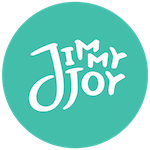







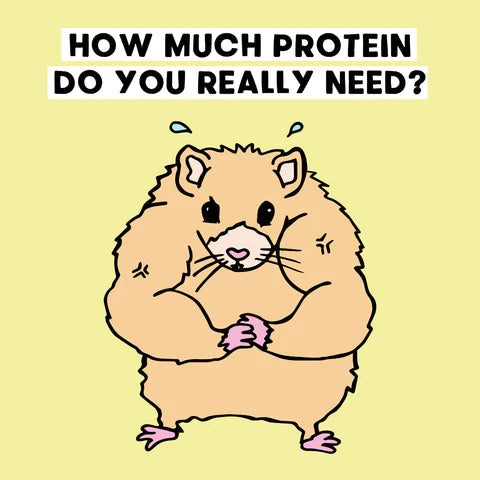











 Product added to cart
Product added to cart







